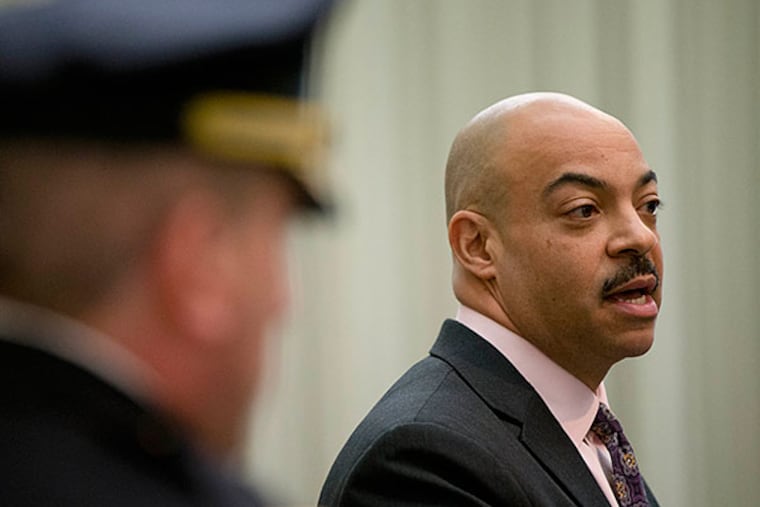Negotiations to settle city's forfeiture suit fail
Efforts to settle a lawsuit that challenges the city's use of state civil forfeiture laws have failed, lawyers told a federal Judge Monday.

Efforts to settle a lawsuit that challenges the city's use of state civil forfeiture laws have failed, lawyers told a federal Judge Monday.
The announcement came a day after District Attorney Seth Williams laid out his most detailed defense yet of the controversial program - one aimed at depriving drug dealers of cash and property, but increasingly under scrutiny for instances involving innocents evicted for only tangential connections to crime.
"Drug dealers and the social rot that comes with their trade ruin neighborhoods - they bring addiction, illegal firearms, death, despair, and destruction," Williams wrote in a column published Sunday in The Inquirer. "With our growing epidemic of prescription-drug and heroin overdoses, making it harder for dealers to operate by removing their profits and profit motive is a good thing."
Darpana Sheth, a lawyer representing four Philadelphia homeowners whose houses were seized last year, declined Monday to discuss her settlement talks with the city. She told U.S. District Judge Eduardo Robreno only that "negotiations have broken down, and we intend to fully litigate this case."
City lawyers said they will seek to have the class-action suit dismissed.
Sheth's clients, who filed in August, had their houses threatened after relatives were accused of dealing drugs on their properties. None of the plaintiffs in the civil suit has been accused of a crime.
That didn't stop authorities from evicting lead plaintiffs Christos and Markela Sourovelis from their house in Somerton after their 22-year-old son was arrested in May for selling marijuana.
Since the Sourovelises filed their lawsuit, the city has dropped its forfeiture effort against their property but maintained it had every right to pursue it.
Pennsylvania's civil forfeiture law allows authorities to go after properties suspected as criminal hot spots even if no one associated with them is charged with a crime.
And unlike in a criminal case, where prosecutors must offer "proof beyond a reasonable doubt," authorities in forfeiture cases must only show it is more likely than not that the property was used in or obtained as a result of a crime.
Property owners can challenge the seizures, but those efforts can take months and multiple court visits to resolve.
The program has netted Philadelphia $64 million over the last decade - much of which has gone to fund the district attorney's annual budget. Critics say those numbers create a clear profit motive for city prosecutors to pursue forfeiture actions.
Williams downplayed those numbers Sunday in his op-ed.
He cited statistics indicating that Philadelphia prosecutors seize cash far more than they seek to take houses, and noted that the U.S. Justice Department remains a leading advocate of civil forfeiture - seizing about $9 billion in 2012 alone.
"Don't believe the claims that we are just snatching up property, mostly homes and autos, owned by random individuals who have nothing to do with drug dealing," Williams wrote of the Philadelphia program.
He also cited a number of changes he has made to the program since taking office.
They include shifting the focus of forfeiture actions toward cash over properties, tightening internal rules for house seizures, and working with legislators to improve the state's civil forfeiture laws.